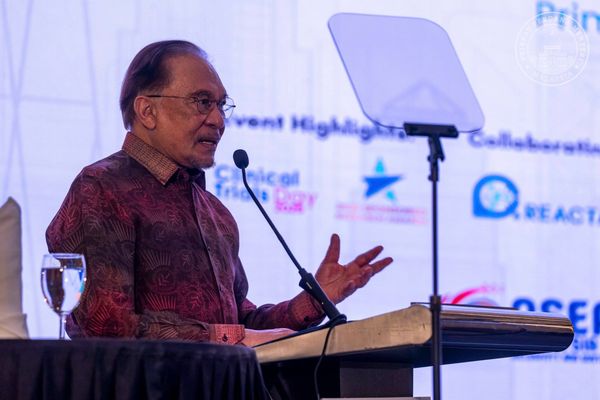KUALA LUMPUR, May 8 — Prime Minister Datuk Seri Anwar Ibrahim has called on Clinical Research Malaysia (CRM) and other local medical research institutions to enhance collaboration with counterparts across Asean to lower the cost of medicine, accelerate medical discoveries, and develop treatments tailored to the region’s needs.
He stressed that CRM should work closely with local universities, especially medical faculties, to ensure research efforts are impactful and serve the needs of the people.
“One of our key challenges is to prevent healthcare costs from escalating. The medical industry can become burdensome, as we’ve seen major companies earning excessive profits without considering the burden on consumers,” he said at the official opening of the CRM Trial Connect Conference 2025 here today.
Anwar added that a stronger and more coordinated Asean collaboration, involving major research centres in Phnom Penh, Vientiane, Singapore, Jakarta, Bangkok, Manila and beyond, could lead to meaningful progress in clinical research.
Also present were Health Minister Datuk Seri Dr Dzulkefly Ahmad and Sarawak Deputy Premier Datuk Dr Sim Kui Hian, who also serves as the state’s public health, housing and local government minister.
Reflecting on the 1970s, the prime minister highlighted that the Institute for Medical Research (IMR) in Malaysia benefited from international expertise, although its focus at the time was largely on diseases prevalent in Western countries.
He emphasised the need for medical research in the country to prioritise health issues affecting the majority of the local population.
“I clearly remember the late Prof Dr Ungku Omar (Ungku Ahmad) saying we should first focus on our own problems, such as hookworm, malaria, and tuberculosis.
“As a result, the IMR shifted its focus to diseases affecting the Southeast Asian region, while still acknowledging the importance of global health concerns,” he said.
Anwar also urged the Health Ministry to ensure its staff and policymakers understand the broader economic context to tackle the “economic disease” plaguing Malaysia.
He said a clear policy framework should guide the ministry, its agencies, and research institutions to address health challenges effectively and sustainably.
“I always remind Dr Dzulkefly to ensure his team not only understands diseases but also the broader economic challenges, including macroeconomic policies,” he said.
Anwar pointed out that while every ministry, department, and research centre seeks increased funding, it is essential to consider competing national priorities such as schools, rural infrastructure, clinics, and hospitals.
“These challenges must be met equitably, with a clear understanding of our financial limitations,” he added.
While the government may allocate more resources, Anwar cautioned that doing so would require increased taxation, which could become a burden not only for the public but also for healthcare professionals.
He also noted that since 2012, the clinical research sector has contributed over RM1.5 billion to Malaysia’s gross domestic product and has created more than 3,000 high-skill jobs.
— Bernama




